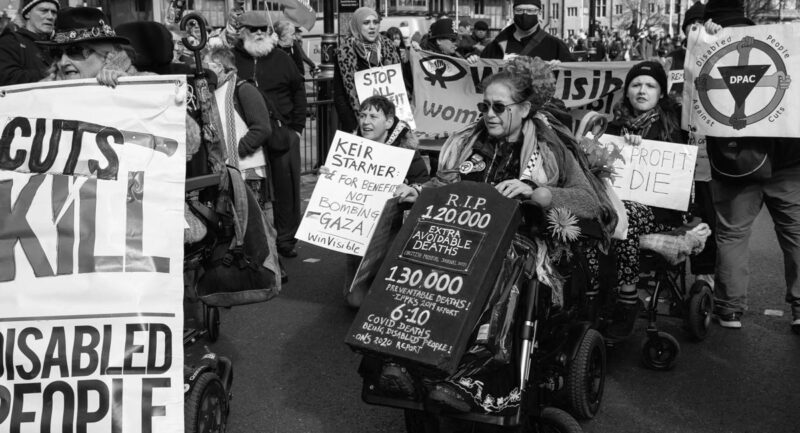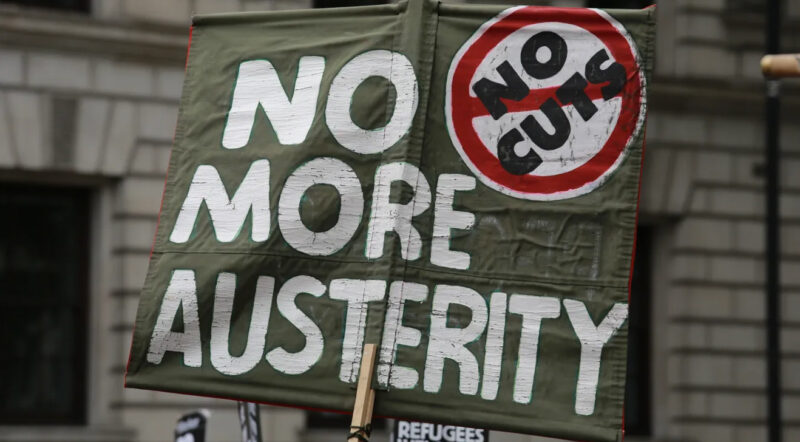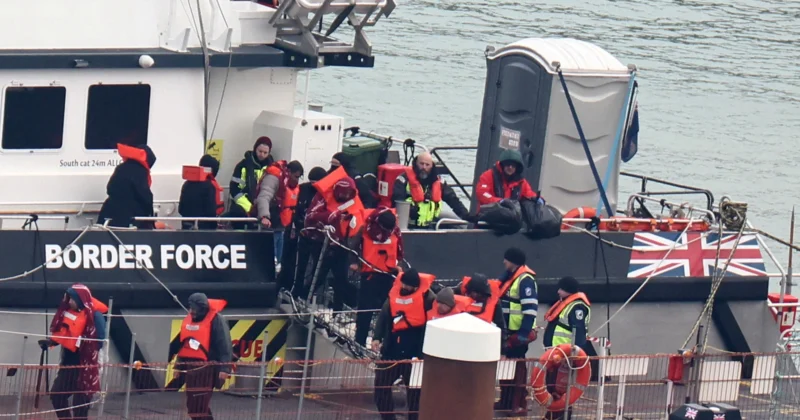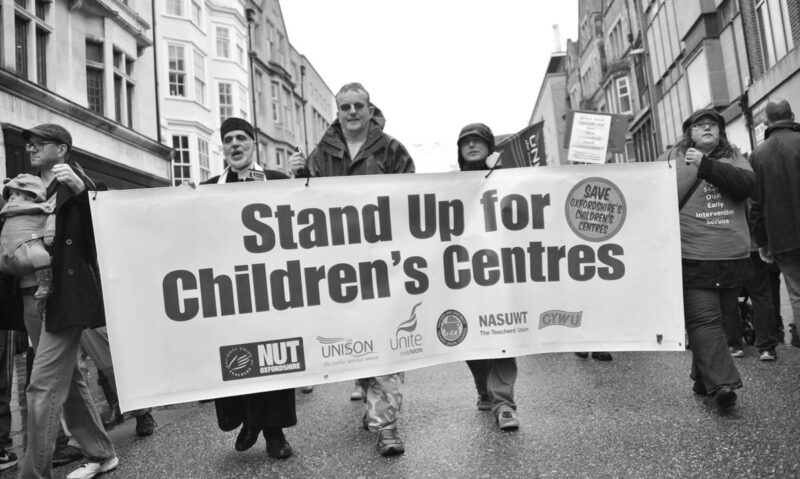Tottenham ablaze: The anger is back
 As images of buildings and cars set ablaze spread through the media, Joana Ramiro reports on the harsh reality of North London’s Tottenham Hale community, where police brutality, racism and repression are, 30 years after the Brixton riots, still the inescapable reality.
As images of buildings and cars set ablaze spread through the media, Joana Ramiro reports on the harsh reality of North London’s Tottenham Hale community, where police brutality, racism and repression are, 30 years after the Brixton riots, still the inescapable reality.
Scenes reminiscent of the riots that shook Britain in the 1980s could be seen again on 6 August, as Tottenham exploded in rage against police brutality. Whilst the media inescapably focussed on the looting and burning of shops, the real tragedy is the systematic poverty and alienation of whole communities, as well as the widespread, and sometimes lethal, abuse of police powers.
Two instances of police violence caused the riot. The first was the shooting of Mark Duggan, a 29 year-old father of four. Duggan was killed by police on 4 August, shot after the minicab he was driving in was told to stop by police involved in the Met’s anti-gun operation Trident. As usual with police killings, from here the reports become ambiguous.
The Met states that one of its officers was forced to fire after Duggan refused to stop, allegedly shooting at the police cars, hitting a radio and injuring one policeman.
Eyewitnesses, however, claimed that both Duggan and another man in the car were dragged out, pinned on the ground and Duggan shot dead.
That day the Guardian writes only, “The Independent Police Complaints Commission is investigating a shooting in north London on Thursday in which a man was killed and a police officer injured”.
The shooting of any person in these circumstances by the police is a tragedy which causes widely felt anger, but Mark Duggan was from the Broadwater Farm estate where a collective memory runs deep. Broadwater Farm was the scene of riots in 1985, when, after years of police violence in the community, tensions peaked as a mother of a young boy, who was being arrested in his home, died of a cardiac attack. The resulting community outrage at the police and the Tories certainly finds its echoes today, 26 years later, in very similar, equally tragic, circumstances.
After the suspicious death of Smiley Culture under custody, earlier this year, the trauma of recurrent police brutality over the last 30 years, it is not surprising that Duggan’s death saw the local community promptly organise a protest outside Tottenham police station, demanding answers and calling for justice.
As if to add insult to injury , it was a second act of police violence that triggered the riot. The police beat up a 16 year-old girl outside the police station when she came up to ask an officer some questions. It demonstrates the utter contempt felt by police towards the local community.
People began turning police cars upside down, trying to set several on fire, as well as storming into the station itself. Symeon Brown, a black youth worker in Tottenham, who was interviewed by the BBC said that people must not “underestimate the power of collective memory” and, crucially, that “we withdraw our consent of the police force”.
The media and political response to this weekend’s riots has been almost unanimous condemnation and support for the Metropolitan Police. Conservative Home Secretary, Theresa May, said she backed the Met in their effort to restore order, Downing Street inevitably saw no justification in the violence. But these kinds of events are almost inescapable in today’s context.
Ironically, this was once recognised by the deputy prime minister himself. In a pre-election speech Nick Clegg argued that a Tory government lacking majority vote could see Britain shaken by “Greek style unrest“. His predictions have been proven right, even though, ironically, it is not just the Tories who have sparked outrage, but Clegg’s liberals too.
The truth is that, since the Coalition Government came to power, much free rein has been given to the Met in order to control the growing discontentment over austerity policies.
Police violence towards protesters and general bystanders has been particularly obvious in the G20 and student demonstrations in 2009 and late 2010, as well as the vicious clampdown on dissent around the Royal wedding. But there is also an emerging pattern of massive police ‘intervention’ into working class communities, as well as the criminalisation of dissent. In Camden two weeks ago, a huge police operation saw Gospel Oak flooded with 200 officers, in order to make just a dozen arrests for drugs related offenses – nearly 20 officers per arrestee. Scandalously, they even turned up at a community centre about to kick the door down, before bemused workers opened it up. Needless to say, a painstaking search of workers by the cops could not yield a single drug.
In Tottenham, one of the poorest areas of London, local crime and police brutality have long gone hand in hand. With the Coalition’s austerity measures leaving several local community projects and programmes without funds the situation becomes even more difficult for the local youth. While the press focuses on looting, it is important to recall the utterly disgraceful role the Met has played the last few months.
There can be no reliance on an organisation that was complicit in the phone hacking scandal and been caught out repeatedly concealing and forging evidence of other police killings (the lies and attempted cover ups around Ian Tomlinson and Jean-Charles de Menezes being a good example).
Media commentators object that people did not need to riot as there was an active Independent Police Complaints Commission under way around the shooting. However, this fails to understand that people don’t trust the toothless IPCC or police spokespeople.
The clear abuse of power by the Metropolitan Police and the auxiliary position of the government prove only that popular unrest is nothing but the outcry of those caught between a rock and a hard place. When a government slashes public spending in this way and presides over a society in which so many people feel that they have no way of improving their lives, then they will take to the streets. As Martin Luther King Jr, a figure who today’s mainstream politicians would almost universally lavish with praise, was quite right when he said, “A riot is the language of the unheard”. (source)
These words ring true today, for Britain’s poor, for the working masses forced to live increasingly miserable conditions, and to our youth and black communities constantly harassed by police forces.
The riot in North London is nothing in the context of historic cuts to public welfare. It is ultimately a reaction to a vicious austerity-obsessed political establishment, who will wreck millions of lives across the country and rely on an increasingly violent out of control police force to protect them.
And if these policies persist, more outbreaks of unrest are inevitable.









